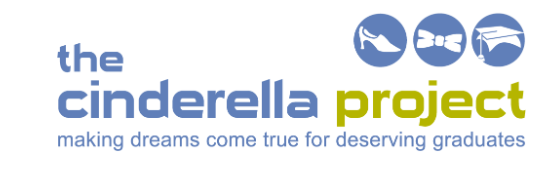March 20, 2024
SVP Vancouver

Takeaways from our Social Dialogue Series Event: A Community Conversation About Systems Change
On March 13th, SVP Partners, Investees, and Alumni gathered for SVP’s first Social Dialogue Series event of the year. We were joined by Dr. Paul Kershaw of Generation Squeeze to delve into the topic of systems change.
We had three goals together:
1. To demystify systems change
2. To talk about the role philanthropy can play in systems change
3. To showcase on-the-ground examples of systems change at work in nonprofits
Kershaw took us through an engaging and enlightening presentation, and then we participated in a lively group discussion with the SVP Partners, staff, and nonprofits in attendance. It was a great kick off to the Social Dialogue Series and we look forward to the next events in this series!
Demystifying Systems Change
Kershaw shared the following about systems change: “What is systems change? Instead of treating symptoms, tackling the underlying disease. Many organizations help people who suffer the symptoms of a problem. These first responders change lives, but the flow of people suffering those symptoms will not slow until we remedy the underlying disease. Only systems change can match the scale and complexity of the polycrisis facing the generations raising young kids. [It’s} developing vaccines to eradicate the disease of generational unfairness. Our work may take longer, but the changes are longer lasting and farther reaching by many orders of magnitude.”
The Role Philanthropy Plays
In our conversation, we delved into the tension that can arise between the acute, immediate, and very pressing needs of children, youth, and their families and the longer timelines that come with investing in changing the system. Kershaw shared the concept of Patient Philanthropy—–how longer- term investments can take time, but can also have significant large- scale outcomes. He shared with us the example of the Vancouver Foundation’s $90k grant to his organization, Generation Squeeze, and how that investment ultimately led to a $30-billion childcare movement, which resulted in a ROI of $333,333 for every dollar invested.

On-the-Ground Examples of Systems Change at Work in Nonprofits
Kershaw laid out a framework for doing systems change work at a policy level to “marshal opinion, evidence and person power to alter political incentives.”
SVP Executive Director Helen Stortini also shared how SVP currently engages in systems change work through the following actions:
1. By supporting nonprofits in their work to effect big and little systemic changes. One example comes from our Early Years Innovation Initiative: New West Family Place. The role of New West Family Place is to support and scaffold the family and caregiver support system that surrounds a child, to help kids and families thrive. SVP provided NWFP with an Early Years Innovation grant to support their Bring Family Place to the Streets initiative. This initiative that aims to spread a strength-based approach throughout New West to transform community programming and is a great example of systems change in action. NWFP is striving to change practices across sectors, change relationships and power dynamics, and change mindsets and behaviours.
Another initiative is the BC Society of Transition Houses (BCSTH). We are helping the BCSTH with their bursary program, which provides small unrestricted bursaries to women who have experienced domestic partner violence, to pursue educational opportunities. This is an example of how small acts and small amounts of money can break a cycle that keeps people stuck in hard places. The immediate result is these bursaries are helping women and their children out of a cycle of abuse with dignity and hope. This small act of support for each woman cumulatively leads to more women participating in our economy, more children growing up in safe and healthy homes, and fewer women and children returning to abusive households. These are shifts that will lead to further ripples of change across multiple sectors.
2. Through our own work as a funder—we help children and youth AND we help the sector.
We help leaders learn and grow in ways not often seen in the funding landscape—–by providing mentorship, thought partners, and access to pro- bono expert consultants, such as our social impact and strategy coach. We stand behind our nonprofits with a network of experts and supports for them to access. While this may seem so sensical, the reality is these opportunities are not that common for the nonprofit sector. We see several foundations that fund children and youth, and some, although these are fewer, that fund leadership development and organizational development, but we are unique in that we do both. As we support leaders to learn and grow, they then take these learnings and different ways of engaging with them when they move to new organizations. The result is small but meaningful changes throughout the sector and how it operates.
Here’s What Some of Our Partners, Investees, Alumni, and Staff Had to Say About the Event
“SVP’s recent Social Dialogue Series event, featuring Dr. Paul Kershaw, reinforced the importance of philanthropy as a key tool in addressing the root causes of so many of our intersecting social, environmental, and economic crises. With CityHive, an organization rooted in youth skills development and youth leadership, his messaging about generational equity and planning for the future resonates at a deep level. It was fantastic to get to learn from his depth of experience and debrief alongside a fantastic room of Investees, Partners, and Alumni. I look forward to future Social Dialogue events!” – Rowan Gentleman-Sylvester, Executive Director, CityHive

“At Mom2Mom, we firmly believe in the power of collective action to create an equitable society where moms and children are not limited by poverty. Central to this endeavour is fostering connection and open dialogue to challenge and dismantle oppressive systems. The recent community dialogue organized by SVP exemplified this ethos, sparking passion and commitment to work as allies in solidarity with our representative communities for the betterment of society as a whole.” – Irene Elhaimer, Executive Director, Mom2Mom

“Dr. Paul Kershaw’s session on systems change highlighted the possibility within each of us to collaborate and manage up to reshape the systems that we work/struggle in. His talk was real talk about inspiring collective action and tangible ways to work within the current institutions, to remind us that each organization, and each person of us has the potential to be a change maker. We have the power when we work collaboratively – that was my key takeaway!” – Dana Osiowy, Executive Director, New West Family Place

“I love what Paul had to say about destigmatizing the concept of ‘lobbying’ in the philanthropic and nonprofit context. It’s so often seen as a dirty word, or something grantmakers should distance themselves from. However, in the context of creating positive change for children and youth, advocacy and lobbying can be critical tools in a nonprofits and philanthropist’s tool belt to see significant and long term change.” – Helen Stortini, Executive Director SVP

“Dr. Kershaw’s presentation on System Change made the concept approachable, through clear explanations and engaging examples, he demystified the complexities of systemic transformation. I left feeling empowered and with a better understanding of the phases for a collective drive to effect positive and sustainable shifts within interconnected systems.” – Meaghan Neufeld, Executive Director, BabyGoRound



